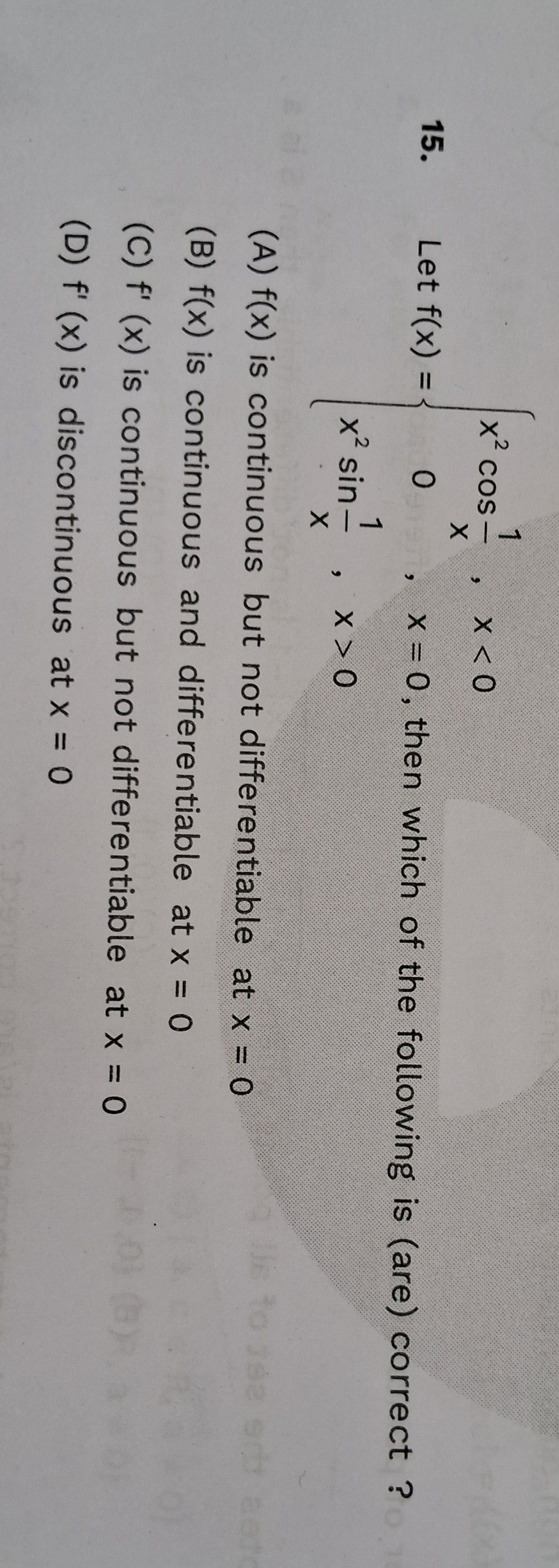Question
Question: Let $f(x) = \begin{cases} x^2 \cos \frac{1}{x}, & x < 0 \\ 0, & x = 0, \text{ then which of the fol...
Let
f(x)=⎩⎨⎧x2cosx1,0,x2sinx1,x<0x=0, then which of the following is (are) correct ?x>0

f(x) is continuous but not differentiable at x = 0
f(x) is continuous and differentiable at x = 0
f'(x) is continuous but not differentiable at x = 0
f'(x) is discontinuous at x = 0
B, D
Solution
-
Continuity of f(x) at x=0: limx→0−x2cosx1=0, limx→0+x2sinx1=0, and f(0)=0. Since all are equal, f(x) is continuous at x=0.
-
Differentiability of f(x) at x=0: f′(0−)=limh→0−hcosh1=0. f′(0+)=limh→0+hsinh1=0. Since LHD = RHD = 0, f(x) is differentiable at x=0, and f′(0)=0.
-
Continuity of f′(x) at x=0:
For x<0, f′(x)=2xcosx1+sinx1. As x→0−, limx→0−sinx1 does not exist. So limx→0−f′(x) does not exist.
For x>0, f′(x)=2xsinx1−cosx1. As x→0+, limx→0+cosx1 does not exist. So limx→0+f′(x) does not exist.
Since the limits of f′(x) as x→0 do not exist, f′(x) is discontinuous at x=0.
Therefore, statements (B) and (D) are correct.
